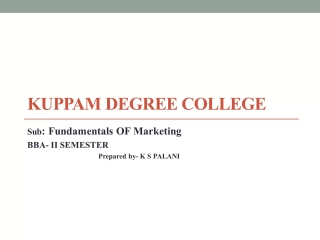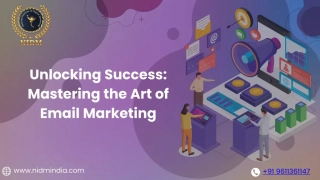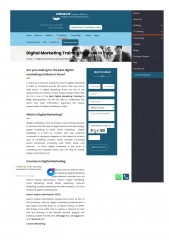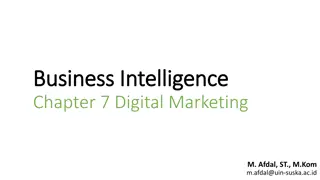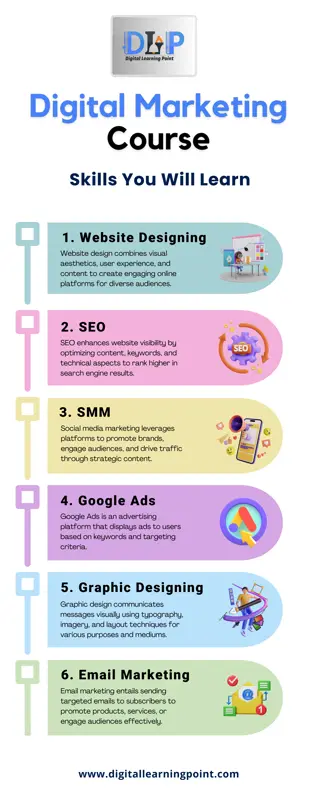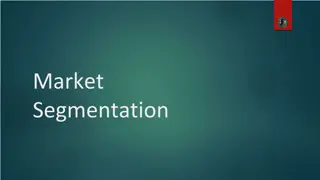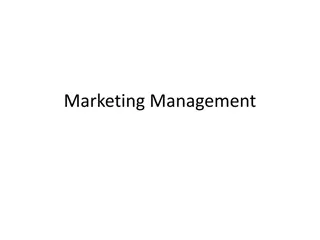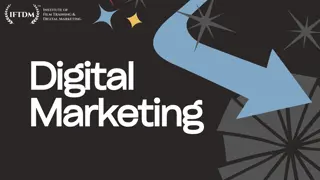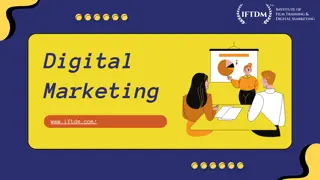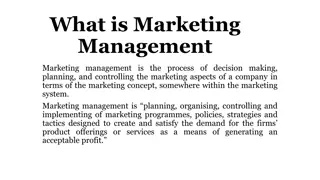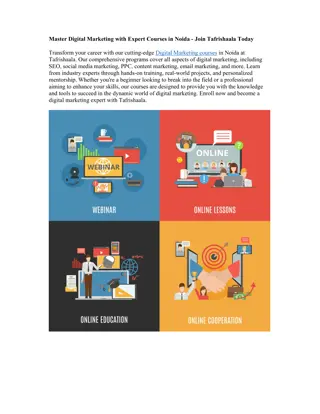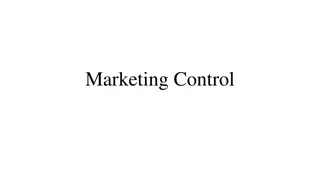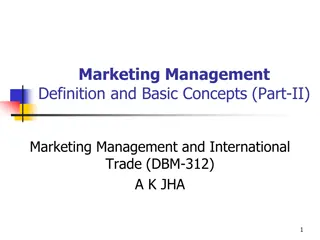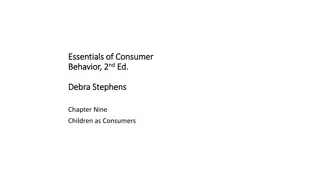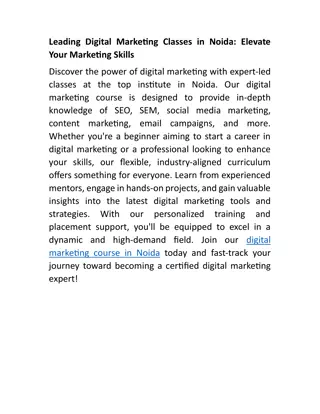Understanding the Fundamentals of Marketing
Marketing is a multifaceted field encompassing activities aimed at maximizing consumer satisfaction. It involves the exchange of goods to fulfill human needs and wants, with Traditional and Modern Marketing Concepts exploring different approaches. Traditional marketing focuses on the flow of goods from production to consumption, while Modern Marketing is customer-oriented, emphasizing innovation and adapting to changing consumer attitudes.
- Marketing Fundamentals
- Consumer Satisfaction
- Traditional Marketing
- Modern Marketing
- Customer-Oriented
Download Presentation

Please find below an Image/Link to download the presentation.
The content on the website is provided AS IS for your information and personal use only. It may not be sold, licensed, or shared on other websites without obtaining consent from the author. Download presentation by click this link. If you encounter any issues during the download, it is possible that the publisher has removed the file from their server.
E N D
Presentation Transcript
INTRODUCTION TO MARKETING
MARKETING: It consists of a large number of activities necessarily performed for a maximum consumer satisfaction. Advanced IT, rapid means of transportation & communication, intense competition, consumer-oriented business strategies, spread of consumerism, business ethics, ecological issues, functioning of MNC s. Marketing is an exchange or a transaction intended to satisfy human needs or wants. Marketing is a human activity directed at satisfying needs and wants. It is concerned with the flow of goods from centers of production to the centers of consumption. Marketing can be studied under two heads: Traditional or old marketing Concept. Modern Marketing Concept.
Traditional or Old Marketing Concept: Traditional marketing is the process of flow of goods from the centers of production to the centers of consumption or use. There are several difficulties and obstacles. A number of activities have to be undertaken and form, place, time and possession utilities have to be created. First the goods have to be manufactured according to the requirements of the consumers; i.e. form utility has to be created. Secondly goods have to be transported or moved from the centres of production to the centres of consumption, i.e. place utility has to be created. Thirdly goods have to be made available to the ultimate consumers or users at the time when they are needed i.e. time utility have to be created. Time utility is created by storing in warehouses until they are needed. Lastly ownership & possession of goods are to be transferred from the producers to the consumers i.e. creation of possession utility. It is created by selling the goods. The various activities that help in the creation of form, place, time & possession utilities and direct the flow of goods from the centers of production to the centers of consumption constitute the subject- matter of traditional marketing. This is Traditional Marketing.
Definitions: In the words of Tousley, Clark and Clark, "Marketing consists of those efforts which effect transfer in ownership of goods and care for their physical distributions . According to Ralph S. Alexander and others, Marketing is the performance of business activities that direct the flow of goods & services from producer to consumer or user".
Modern Marketing Concept: In the modern context, marketing is not considered as a mere (only) physical process or set of activities connected with the exchange of goods. It is concerned with the creation of customers i.e., identifying the needs of the consumers and then organising the business accordingly to meet the needs of the consumers. Modern Marketing is "consumer-Oriented". Modern Marketing came into existence due to: There is an element of innovation in modern business. There has been a change in the objective or purpose of business. There has been a change in the attitude of the consumers in recent years.
Definitions: In the words of J.F. Pyle, "Marketing is that phase of business activity through which human wants are satisfied by the exchange of goods & service". According to Cundiff & Still, "Marketing is the business process by which products are matched with the market and through which transfer of ownership are effected .
FEATURES OR CHARACTERISTICS OF MODERN MARKETING: 1. Modern Marketing is Consumer-Oriented. The objective of business has changed considerably in recent years. Earlier the main objective was profit maximization. But today, it is to create satisfied customers. Modern marketing has become consumer oriented and the consumer has become the king in modern marketing. The producers first ascertain what the consumers want, and then produce goods according to the needs of the consumers. The producers release only those goods that could be sold to the satisfaction of consumers at a profit to producers. It is the consumers who decide & determine what should be produced and marketed by a business. 2. Modern Marketing begins and ends with the consumers. Marketing begins with the information flowing from the consumers to the producers as to what they want and what should be produced, and ends with the goods desired by the consumers flowing from the producers to the consumers.
3. Modern marketing precedes and succeeds production. All business organisations are fully convinced that marketing activities must begin, not after the goods are produced but far ahead of production. Business organiations must determine, through studies and research before production, what the consumers want, how much they want, when and where they want & at what price they want & then the production of goods must begin. Marketing activities succeed production, in the sense that the marketing activities will continue until the goods produced in accordance with the needs of the consumers are moved to them. 4. Modern marketing is the guiding element of business: It is the marketing potentialities and not the production resources that guide a business today. It emphasizes the need for the integration and the successful performance of the various marketing activities involved from the time of the conception of the product idea until its profitable sale to the final consumers.
DIFFERENCES BETWEEN TRADITIONAL MARKETING & MODERN MARKETING: TM is a mere physical process connected with the exchange of goods. MM is a philosophy of business concerned with creation of satisfied customers. It is not just a physical process. TM is sales oriented, MM is customer oriented. TM is concerned with performance of activities necessary to secure the distribution and sale of goods which the producer has. MM is concerned with the performance of activities necessary to secure the distribution and sale of goods as are needed by the consumers. TM focuses on seller s needs; MM focuses on consumer s needs.
In TM selling efforts are company oriented, MM - selling efforts are market oriented. TM aims at profit through increased sales volume i.e. more sales. MM aims at profit through increased sales to the satisfaction of the consumers and profit to the sellers. TM aims at short-term objectives i.e. short term profits. MM aims at long-term objectives i.e. long term profits. TM can be successful only in a country where there is shortage of goods leading to the existence of a seller s market. It cannot be successful in a country where there is surplus leading to the existence of buyers market. MM can be quite successful in a country where there is buyer's market.


